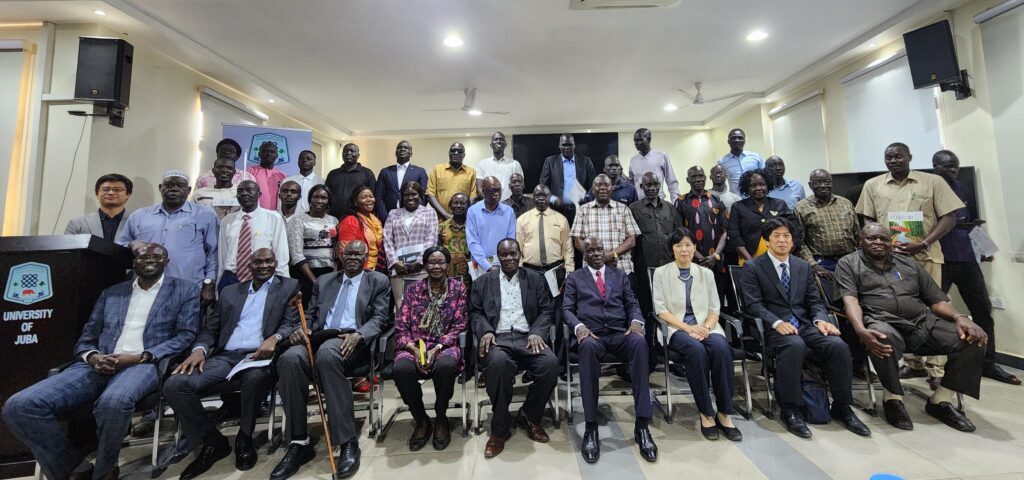The University of Juba, in collaboration with the Japanese government through the Japan International Cooperation Agency (JICA), on Thursday launched the Institute for Japanese Studies.
The institute is a center for research and programs to promote Japanese diplomatic relationship at the academic level.
Speaking to Radio Tamazuj during the launch, the Director of the Institute of Japanese Studies, Prof Jacob Chol, said its establishment started in 2021 as a program for JICA to assist in research.
Prof Chol said the institute will allow researchers from Japan and South Sudan to interact and will in future expand to a hub for the Asian studies, the Far East and South East Asia so that South Sudan can market itself to the Asian region.
“The institute is very important, very vibrant and that is why it was launched today. It will be based at the Japanese culture center which is called the Japanese corner so that research, seminars and publications will be conducted at the institute,” Chol said.
Prof Chol said with time, the management of the university will formulate the program that will be taken to the Senate for approval and the institute will be issued with courses leading to diplomas, degrees, masters and PhDs.
The Japanese Ambassador to South Sudan, Toshio Odagiri, said his country was proud to have a long history of cooperation with the University of Juba.
He said the Embassy of Japan, in collaboration with UNDP, established the Juba Japan Cultural Center at the University of Juba, located right next to the library, is equipped with solar panels, PCs and over 100 Japan-related books donated by the Nippon Foundation.
“I encourage the Institute of Japan Studies (IJAS) students to use the cultural center to deepen their Japanese studies. JICA has provided the materials and lectures on Japanese studies known as the JICA Chair, including the special seminar by the former JICA president,” he said.
Odagiri said the University of Juba’s decision to establish IJAS may be partly due to the similarities in the history between Japan and South Sudan.
“South Sudan has suffered from many conflicts but is now peace-oriented and making steady progress towards sustainable development. Japan also experienced a devastating World War II. But it overcame the tragedy and achieved rapid economic growth. It is hoped that learning about such Japanese political, economic, and social structures will deepen understanding of best practices that can benefit the development of South Sudan,” he explained.
He said the Embassy of Japan also hopes to continue to support the development of Japanese studies at the University of Juba, not only today but also in the future, in cooperation with JICA.
The Chief Representative of JICA in South Sudan, Tanaka Hiroyuki, said the JICA-shared program is a Japanese studies initiative promoting various higher institution of learning in different countries with the intention to share Japanese experience for social, political and for economic development. “We are happy to contribute to the university’s vision and activities such as the establishment of the institute for Japanese studies with an objective of enhancing knowledge sharing and cooperation, especially through JICA program,” he said.




